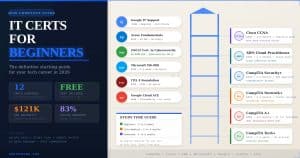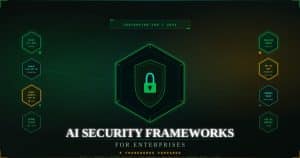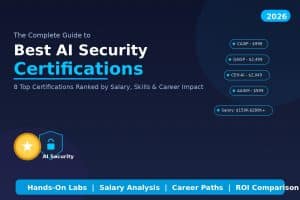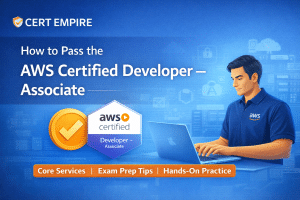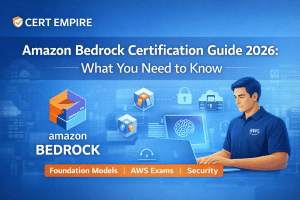Are you considering getting AWS certified? The AWS Cloud Practitioner CLF-C02 certification is a great starting point for anyone looking to understand the basics of cloud computing and how AWS works. Whether you’re new to the tech industry, switching careers, or just curious about cloud services, this certification can open doors to exciting opportunities.
In this guide, we’ll walk you through everything you need to know about the exam – from what’s new in the latest version to the best ways to prepare and pass with confidence. Let’s dive in and explore how you can kick-start your AWS journey!
Who Should Consider Taking the CLF-C02 Exam?
The CLF-C02 exam, also called AWS Certified Cloud Practitioner, fits those who want to understand the basics of AWS without diving too deep into technical aspects. If you’re curious about cloud tech but don’t code or build systems daily, this cert makes sense. It’s for people who want a clear picture of AWS without getting lost in details.
Who benefits?
Beginners stepping into cloud computing. Whether you’re shifting careers or just starting out, this exam gives you a good starting point. You’ll get to know how cloud services work and what AWS offers without feeling overwhelmed.
Business pros who work with tech teams. If you’re in sales, marketing, project management, or any non-technical role but deal with cloud projects, understanding AWS basics helps you communicate better with the tech side.
Decision-makers and stakeholders. Those involved in strategic planning, budgeting, or vendor selection will find this cert useful. Knowing how AWS pricing works or what services can improve efficiency helps with smarter business moves.
Students or fresh grads. If you’re finishing up college and want something to make your resume stand out, this entry-level cert shows you’re ready for cloud roles.
If you’re just starting your journey, these CLF-C02 Exam Study Tips and Exam Strategies will help you structure your study plan and focus on the right areas for success.
Ideal Candidates for This Certification
AWS designed this exam for a broad audience. You don’t need deep technical skills to take it, but having a bit of curiosity helps. Some people who should seriously consider it:
Newbies to the cloud. If you’re hearing terms like “EC2” and “S3” for the first time, this cert will explain what they are in plain terms. No coding or server management skills needed.IT support staff. Even if you’re handling basic troubleshooting or support, knowing AWS fundamentals can make you more valuable in a cloud-driven company.
People in sales roles. Selling cloud services or consulting on AWS solutions? This cert will help you explain offerings to clients without the technical jargon getting in the way.
Entrepreneurs and small business owners. If you’re running a startup and want to move to the cloud, it helps to know what AWS can do without hiring a specialist right away.
HR and recruiters. If you’re hiring cloud professionals, having a solid understanding of AWS terms can make it easier to screen candidates and understand job requirements.
How Beginners and Non-Technical Professionals Can Benefit
The CLF-C02 isn’t loaded with complex topics, so it’s friendly to people with little to no technical experience. Here’s how it helps beginners and non-tech folks:
Learn the language of cloud. You’ll pick up essential terms like “availability zones,” “regions,” and “pay-as-you-go” billing models. This helps in day-to-day conversations at work.
Better job opportunities. Cloud skills are in demand across industries, and even basic knowledge can set you apart in job interviews.
Confidence boost. Understanding AWS fundamentals helps beginners feel more comfortable discussing cloud solutions with their colleagues or clients.
No coding required. Unlike other AWS certs, this one doesn’t expect you to write code or configure complex infrastructure.
Smooth transition into cloud technology careers. If you plan to move into technical roles later, this exam serves as a stepping stone before tackling harder certs like AWS Solutions Architect Associate.
For a detailed breakdown of earning potential and career growth, check out our guide on Jobs and Salary for CLF-C02 Professionals.
Industries and Roles Where This Certification is Valued
AWS isn’t limited to tech companies anymore. Industries across the board are using it, and having this cert can open doors in many fields:
Healthcare. Hospitals and clinics store patient data in AWS cloud environments. Understanding compliance and security aspects helps professionals in healthcare IT or admin roles.
Finance. Banks and fintech companies are using AWS for secure transactions, fraud detection, and data analytics. If you’re in banking or financial planning, knowing AWS basics is a plus.
Retail and e-commerce. Platforms rely on AWS for handling traffic spikes, managing inventory, and securing customer data. Roles in marketing, supply chain, and operations benefit from AWS knowledge.
Education. Schools and universities are adopting AWS for online learning and managing student data. Teachers and admin staff with AWS knowledge can better leverage cloud tools.
Manufacturing. AWS helps factories monitor production lines, analyze data, and improve efficiency. Engineers and supply chain managers will find it useful.
Government and public sector. Many agencies are moving services to the cloud to cut costs and improve services. Having AWS skills makes government roles easier to handle.
Not sure if CLF-C02 is right for you? Here’s a detailed CLF-C02 vs. AZ-204 Cloud Certification Comparison to help you decide between AWS and Microsoft Azure development tracks.
Roles that benefit from CLF-C02:
- Business analysts
- Sales and account managers
- IT project managers
- Support staff
- Entrepreneurs
- Marketing professionals
- Customer success managers
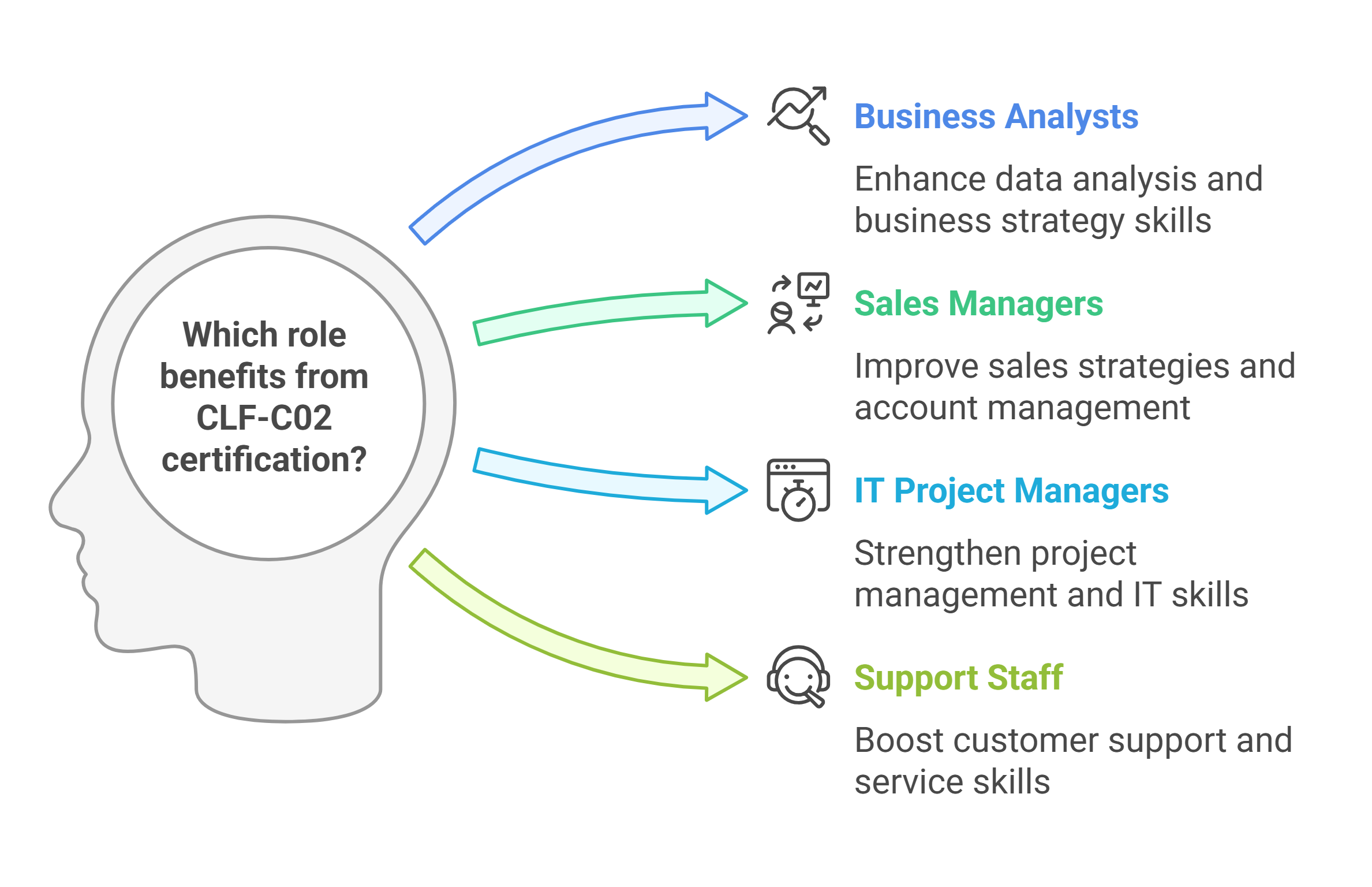
Breaking Down the AWS Cloud Practitioner Exam Structure
If you’re planning to take the AWS Certified Cloud Practitioner (CLF-C02) exam, understanding how it’s structured can help you prepare better and manage your time effectively during the test. Here’s a detailed breakdown of what to expect:
Number of Questions and Exam Duration
The AWS Cloud Practitioner exam consists of 65 questions, and you’ll have 90 minutes to complete it. While this may sound manageable, it’s important to pace yourself because some questions may require extra thought, especially the scenario-based ones.
You’ll want to allocate your time wisely:
- Quick recall questions – These are straightforward, and you can answer them in seconds.
- Scenario-based questions – These may take longer, so plan to leave enough time for review.
- Time management tip: Aim to spend around 60–75 seconds per question to leave enough time at the end to review flagged questions.
The exam can be taken either online (proctored) or at a physical testing center, whichever works best for you.
If you’re considering security-focused paths, take a look at our CLF-C02 vs. AZ-500 Certification Comparison to see how AWS stacks against Microsoft’s security certification.
Question Formats You Should Expect
AWS keeps the exam format beginner-friendly but does mix things up with different types of questions. The two primary formats you’ll encounter include:
Multiple-Choice Questions (MCQs)
These are the most common type. You’ll get one correct answer and three distractors. Sometimes, the incorrect answers or options will sound convincing, so pay attention to keywords in the question.
- Example:
Which AWS service is used for object storage?- A) EC2
- B) Lambda
- C) S3 (Correct)
- D) RDS
Multiple-Response Questions
Here, you’ll have more than one correct answer (usually two out of five options). You’ll need to select all correct responses to earn points.
- Example:
Which AWS services provide compute capabilities?- A) EC2 (Correct)
- B) S3
- C) Lambda (Correct)
- D) CloudFront
- E) RDS
Scenario-Based Questions
These are designed to test your understanding of AWS concepts in real-world situations. You’ll be given a short case study and asked to identify the best AWS solution for the situation.
- Example:
A startup wants a scalable way to host their website with minimal management. Which service should they use?- A) EC2
- B) S3 Static Website Hosting (Correct)
- C) Elastic Beanstalk
- D) Redshift
True/False and Best Practice Questions
Some questions test your knowledge of AWS best practices, pricing models, and security principles.
- Example:
True or False: AWS offers a pay-as-you-go pricing model for all services.- A) True (Correct)
- B) False
Scoring System and Passing Criteria Explained
AWS uses a scaled scoring system, meaning your raw score (number of correct answers) is converted into a standardized scale. The final score ranges from 100 to 1,000, with 700 being the minimum passing score.
How scoring works:
- Each question carries a different weight depending on its complexity.
- Some questions might be worth more points, especially scenario-based ones.
- Unanswered questions are counted as incorrect, so it’s better to make an educated guess.
- There’s no penalty for wrong answers, so always attempt every question.
Pass/Fail Criteria:
A score of 700 or higher means you pass.
Scores below 700 require a retake (after a mandatory wait period).
You’ll receive a pass/fail notification immediately after completing the test.
Performance breakdown:
After the exam, you’ll get a detailed report that highlights your strengths and weaknesses across different areas such as cloud concepts, security, billing, and AWS core services.
For cloud administration roles, our CLF-C02 vs. AZ-104 Certification Comparison explains which one aligns better with your career plans.
Core Domains You Need to Focus On
The AWS Cloud Practitioner (CLF-C02) exam is structured around several core exam domains that cover the basics of cloud computing and AWS services. Focusing on these areas will help you build a solid foundation and improve your chances of passing the exam. Let’s break down each domain and what you should concentrate on.
1. AWS Cloud Concepts: Understanding the Fundamentals
If you’re new to cloud computing, this domain sets the stage by explaining why cloud services exist and how AWS fits into the bigger picture. Key topics to focus on include:
What is Cloud Computing?
AWS offers cloud computing as a way to access IT resources over the internet instead of maintaining physical hardware. Understand the core benefits such as scalability, reliability, and cost-effectiveness.
AWS Global Infrastructure
AWS is made up of Regions, Availability Zones (AZs), and Edge Locations.
- Regions are geographical areas (e.g., US-East-1, EU-West-1).
- Availability Zones are multiple, isolated locations within a region to ensure redundancy.
- Edge Locations support services like CloudFront to deliver content faster.
Cloud Deployment Models
AWS supports different deployment approaches:
- Public Cloud (fully managed AWS services)
- Private Cloud (on-premises with AWS Outposts)
- Hybrid Cloud (mix of AWS and on-prem resources)
Shared Responsibility Model
AWS handles security of the cloud (hardware, networking), while customers are responsible for security in the cloud (data, applications, identity access).
Elasticity vs. Scalability
Elasticity allows AWS to adjust resources automatically based on demand, while scalability enables steady growth by adding resources when needed.
2. Security and Compliance: How AWS Ensures Data Protection
Security is a critical part of AWS, and the exam tests your understanding of key AWS security tools and concepts. Focus on the following:
AWS Security Pillars
AWS builds security around Confidentiality, Integrity, and Availability (CIA Triad).
Identity and Access Management (IAM)
This is a must-know service that controls user permissions and access within AWS. Learn about:
- Users, Groups, Roles, and Policies
- IAM Best Practices (least privilege principle, multi-factor authentication)
- AWS IAM Policy Structure (JSON-based permissions)
AWS Security Tools
Key services include:
- AWS Shield (DDoS protection)
- AWS WAF (Web Application Firewall for filtering malicious traffic)
- AWS KMS (Key Management Service for encrypting data)
- Amazon GuardDuty (threat detection service)
Compliance Programs
AWS complies with various industry standards like HIPAA, GDPR, ISO, SOC 1/2/3, ensuring organizations meet regulatory requirements.
Data Encryption Options
AWS provides encryption both at rest (S3, EBS) and in transit (TLS for data transfer). Know the difference between AWS-managed and customer-managed encryption keys.
3. Technology and Infrastructure: Key Services You Must Know
AWS offers a broad range of services, but the exam focuses on foundational ones across computing, storage, networking, and databases. Understand how these work:
Compute Services
- Amazon EC2 – Virtual servers that run applications. Understand instance types and pricing models (On-Demand, Reserved, Spot).
- AWS Lambda – Serverless compute service that runs code in response to events without managing infrastructure.
- Elastic Beanstalk – A platform-as-a-service (PaaS) solution that deploys web applications easily.
Storage Services
- Amazon S3 – Object storage that scales automatically. Learn about storage classes (Standard, Infrequent Access, Glacier).
- Amazon EBS – Block storage for EC2 instances with persistent storage.
- Amazon Glacier – Archive storage designed for long-term data retention at a low cost.
Networking Services
- VPC (Virtual Private Cloud) – Allows you to set up isolated environments within AWS. Learn about subnets, route tables, security groups, and NAT gateways.
- Amazon CloudFront – Content delivery network (CDN) that speeds up website delivery.
- AWS Route 53 – Scalable domain name system (DNS) for routing traffic.
Database Services
- Amazon RDS – Managed relational database with support for MySQL, PostgreSQL, and others.
- DynamoDB – NoSQL database for high-speed data processing.
- Amazon Redshift – Data warehouse solution for analytics.
Monitoring and Management
- AWS CloudWatch – Monitors AWS resources and logs performance data.
- AWS CloudTrail – Tracks user activity and API calls for audit purposes.
- AWS Trusted Advisor – Provides recommendations for cost savings, performance, and security improvements.
4. Billing and Pricing: Cost Management Essentials
AWS follows a flexible pay-as-you-go model, which allows businesses to only pay for what they use. Understanding AWS pricing models and cost management is crucial for the exam.
AWS Pricing Models
Be familiar with the key pricing strategies across AWS services:
- On-Demand – Pay for compute/storage resources per hour or second.
- Reserved Instances – Prepay for EC2 and RDS instances at a discounted rate.
- Spot Instances – Bid for unused capacity at lower prices (suitable for non-critical workloads).
- Savings Plans – Commit to a specific usage level to receive discounts.
AWS Free Tier
AWS offers a free tier with limited resources (e.g., 750 hours of EC2 per month) to help new users explore services without cost.
Total Cost of Ownership (TCO)
AWS helps companies reduce overall infrastructure costs by eliminating hardware expenses, maintenance, and scaling costs.
Cost Management Tools
AWS provides several tools to monitor and optimize spending:
- AWS Cost Explorer – Helps visualize and forecast spending trends.
- AWS Budgets – Set up custom cost alerts to avoid unexpected charges.
- AWS Pricing Calculator – Estimates costs based on expected usage.
Support Plans
AWS offers different support tiers based on business needs:
- Basic – Free, includes account-level support.
- Developer – Email support during business hours.
- Business – 24/7 support with faster response times.
- Enterprise – Dedicated account managers and architecture support.
If you’re comparing beginner-friendly options, don’t miss our CLF-C02 vs. AZ-900 Certification Comparison to see which is the better first step into cloud computing.
Creating a Personalized Study Plan That Works
Assess Your Current Knowledge:
- Identify areas where you’re confident and topics that need more attention.
Set Clear Goals:
- Define what you aim to achieve each week leading up to the exam.
Allocate Study Time Wisely:
- Dedicate more time to challenging subjects.
- Use a mix of reading, videos, and hands-on practice.
Utilize Multiple Resources:
- Combine official AWS materials with reputable third-party content for a well-rounded understanding.
Regularly Take Practice Tests:
- Assess your progress and adjust your study plan accordingly.
Time Management Strategies for Effective Learning
- Consistent Short Sessions: Instead of long, infrequent study marathons, opt for shorter, regular sessions to enhance retention.
- Active Learning: Engage with the material through note-taking, summarizing, and teaching concepts to someone else.
- Scheduled Breaks: Incorporate short breaks to prevent burnout and maintain productivity.
- Limit Distractions: Create a dedicated study environment free from interruptions.
Many candidates move from CLF-C02 to AWS Solutions Architect. Our CLF-C02 vs. SAA-C03 Certification Comparison highlights the differences and helps you choose your next step.
Ace Your Exam with the Best Exam Dumps by Cert Empire
Cert Empire offers up-to-date exam dumps for exam preparation for the CLF-C02 exam, providing a collection of real exam questions to practice.
A well-rounded preparation strategy will boost your confidence and ensure a solid and comprehensive understanding of AWS concepts, helping you succeed on exam day and apply your knowledge effectively in real-world scenarios. Get the best CLF-C02 exam dumps to streamline your study process and maximize your chances of passing
Frequently Asked Questions (FAQs)
1. How difficult is the AWS Cloud Practitioner CLF-C02 exam?
It’s considered an entry-level certification with straightforward concepts, but it requires a good understanding of AWS fundamentals to pass.
2. What is the best way to prepare if I have no prior cloud experience?
Start with AWS free training resources, practice hands-on with AWS Free Tier, and take mock tests to build confidence.
3. Are practice exams accurate representations of the real test?
Quality practice tests closely mirror the format and difficulty of the real exam, but actual questions may vary.
4. How long does it take to prepare for the CLF-C02 certification?
On average, 2-4 weeks of consistent study should be enough for beginners, depending on prior knowledge and study pace.
5. Is there a validity period for the certification?
Yes, the AWS Cloud Practitioner certification is valid for three years, after which recertification is required.
6. Can I use AWS services without getting certified?
Yes, AWS services are accessible to anyone, but certification helps validate your knowledge and improve credibility.
7. Will the CLF-C02 certification help in landing a job in cloud computing?
It’s a great starting point that can help entry-level candidates demonstrate cloud knowledge, but practical experience is also valuable.



















